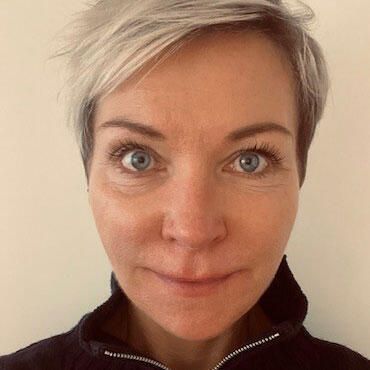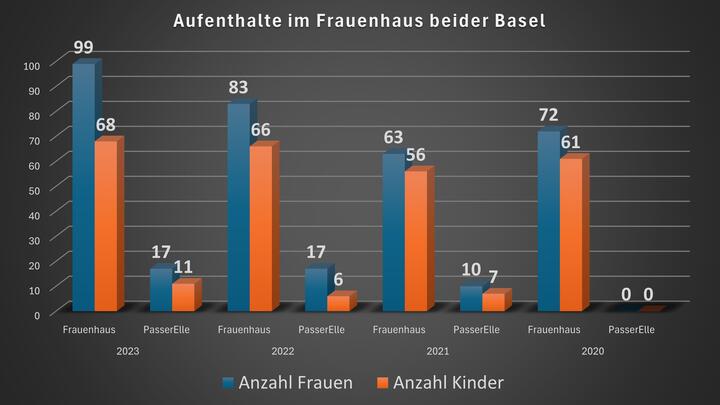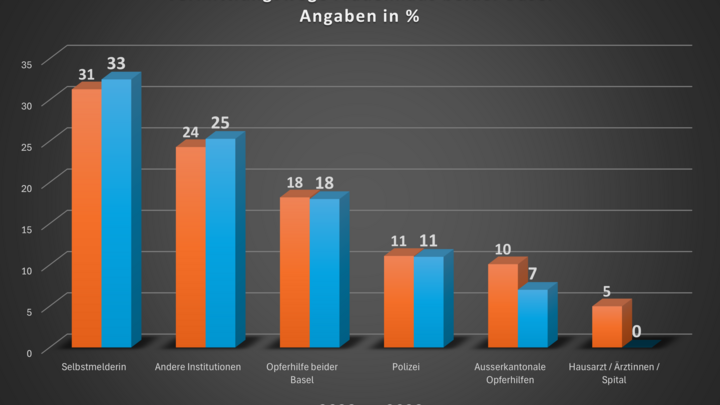A safe place for women and their children
The Basel Women's Refuge has been offering women and children refuge and protection from domestic violence since 1981. In 2023 alone, 99 women and 68 children found safety and counselling there. Rapp has supported the organisation with a substantial donation.
The work in the women's shelter is reminiscent of the endless struggle of Sisyphus, the king of Corinth, who tried again and again in vain to roll a boulder up a mountain. In 1981, the founders still hoped that such a women's refuge would soon be superfluous. "Unfortunately, that's not the case," says Anita Olah-Erichsen, who is responsible for communication and fund-raising. She also often experiences the work against domestic violence as an endless battle in which one must repeatedly start all over again, she says in the interview. Nevertheless, everyday life in a women's refuge is characterised by individual success stories.
Frightening figures and realities
The statistics clearly show how far away the goal of a life free of violence is for many women. The number of cases of domestic violence registered by the police is consistently high, with around 20,000 cases reported in 2022 and 2023. That's more than road accidents! And even more alarming: women and girls die every fortnight as a result of this violence. The perpetrators are current or former partners, but also sons, brothers or even parents. "I wish it were different," says Olah-Erichsen. The women's refuge also recorded an increase in calls in 2023, with a total of 650 calls. There will be even more in 2024. "Not everyone who called was looking for shelter," she explains. "About half of them wanted counselling or information to find out whether a stay in a women's refuge was the right thing for their situation."
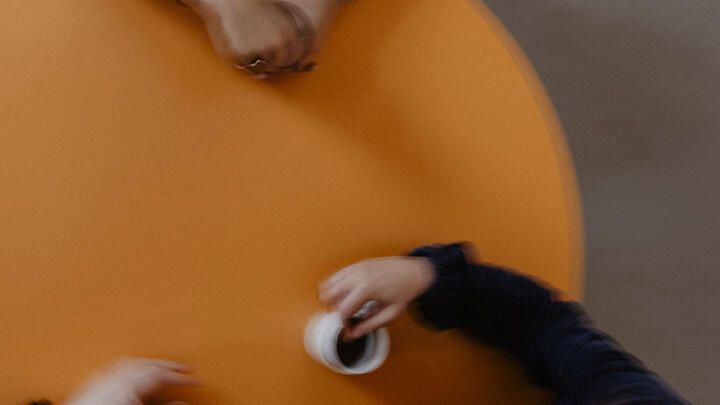
The causes of domestic violence are manifold. Studies show that violence in partnerships often has more to do with the character traits of the violent partner than with the characteristics of the woman affected.
First objective: Find peace
A stay in a women's refuge is always voluntary. The social workers and social education workers support the women in a four-phase model. "The first few days are extremely important," emphasises Olah-Erichsen. As a first measure, the women hand in their mobile phones so that they cannot be found by the perpetrators. Once the client has been admitted, the main focus is on ensuring safety, stabilising the client, assessing the current situation and building trust in the counsellor. "The client should calm down, relax and take time to get used to the new situation." This is already difficult enough, but in these moments of calm, the women report that they are believed for the first time.
Exploring new perspectives
Planning for the future then takes centre stage. "The client is shown new perspectives," emphasises Olah-Erichsen. She should be given clarity about her rights and room to manoeuvre before taking any further steps. Those seeking protection also deal with their situation of violence and danger. "In cases of abuse, the partner often shows remorse and promises to change his behaviour." Unfortunately, such assurances rarely lead to a change in behaviour. Many perpetrators justify their violent outbursts by claiming that they are under too much pressure. "They look for the reasons for the loss of control in their partner and blame the victim for their actions," explains Olah-Erichsen.
Grosse Gefahr bei Trennung
Ohne Hilfe von aussen dreht sich die Spirale oft weiter. Auch nach dreieinhalb Jahren ist die Kommunikationsfachfrau erstaunt, wie viel die Schutzsuchenden aushalten. «Es geht in der Regel sehr lange, bis sie sich für einen Eintritt in das Frauenhaus entscheiden.» Das sei überhaupt der gefährlichste und schwierigste Moment für die Frauen! Oft sind familiäre Strukturen im Spiel, die Druck ausüben, oder finanzielle Abhängigkeiten, wenn der Frau der Zugang zu Geld verwehrt wird. Und es darf auch nicht vergessen gehen, dass in der Regel am Anfang einer Gewaltgeschichte eine Liebesgeschichte stand. Eines ist sicher: Bei einer Trennung eskaliert die Situation häufig, auch wenn Kinder im Spiel sind. Sie sind besonders betroffen, weil sie nicht wissen, was auf sie zukommt: «Sie wollen einfach, dass es beiden Elternteilen gut geht». Wie die Frauen leiden auch die Kinder unter der Gewalt «So kann es auch sein, dass Kinder als Druckmittel eingesetzt werden», sagt Olah-Erichsen. Es wird gedroht, die Kinder zu entführen oder ihnen etwas anzutun.
Great danger in the event of separation
Without outside help, the spiral often continues. Even after three and a half years, the communications expert is still amazed at how much the people seeking protection can take. "It usually takes a very long time before they decide to enter the women's refuge." This is the most dangerous and difficult moment for women. There are often family structures at play that exert pressure, or financial dependencies if the woman is denied access to money. And it should not be forgotten that a love story is usually at the beginning of a story of violence. One thing is certain: the situation often escalates during a separation, even if children are involved. They are particularly affected because they don't know what to expect: "They simply want both parents to be happy." Like the women, the children also suffer from the violence. "It can also be the case that children are used as a means of exerting pressure," says Olah-Erichsen. There are threats to kidnap the children or do something to them.
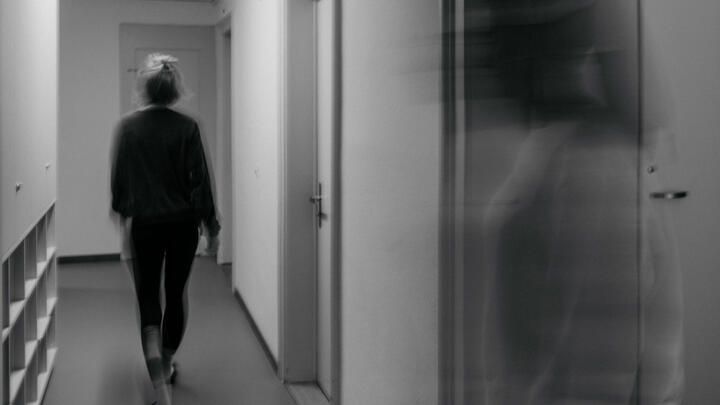
Do not look away
What can we do as a society? "If we trivialise domestic violence in partnerships or attach little importance to gender equality, this encourages violence," says Olah-Erichsen. She therefore calls on people not to look away – regardless of whether it's friends, colleagues or neighbours. "We all know a woman who is affected," she says, only to immediately add that "typically, no one ever knows a perpetrator." Even after almost 45 years, the women's refuge remains an important institution in the fight against domestic violence. Projects such as "Liaison" and "ImPuls" offer psychological support in collaboration with the University Psychiatric Clinics in Basel. But despite all its efforts, the women's refuge often reaches its capacity limits: in 2023, 18 per cent of women had to be turned away because of a lack of space. "This is difficult for us to bear, so it's all the more important that we can show the callers a different solution and define further steps with them. They can also call the women's refuge again at any time." The women's refuge is and remains a place of refuge and hope. As long as there is domestic violence, its work will remain indispensable.
If we trivialise domestic violence in partnerships or attach little importance to gender equality, this encourages violence.
35 Number of employees
10 beds for women
7 beds for children
27 days average stay in a women's refuge
47 days average stay in the PasserElle
Project Liaison
The project "Strengthening mothers and children affected by violence" (Liaison) was developed in collaboration with the Clinic for Children and Adolescents at the University Psychiatric Clinics in Basel (UPKKJ). The aim of the project is to provide rapid and low-threshold initial psychological intervention for children and young people with a focus on promoting resilience. The service includes consultation hours, visits to the in-house play centre, emergency interventions and the exchange of specialist knowledge, and it is accessible to all mothers and children in-house in the women's refuge.
ImPuls - initial intervention psychological support
During their stay in the women's refuge, those seeking protection come to terms with the violence they have experienced and the danger they are in. This is very stressful and can lead to crisis situations. Possible consequences of the often long-term violence are trauma and psychological challenges. Since summer 2023, a two-year pilot project at the Basel Women's Refuge has been offering all clients low-threshold, initial psychological intervention by the cooperation partner UPK. This enables prompt psychotherapeutic support after domestic violence.
